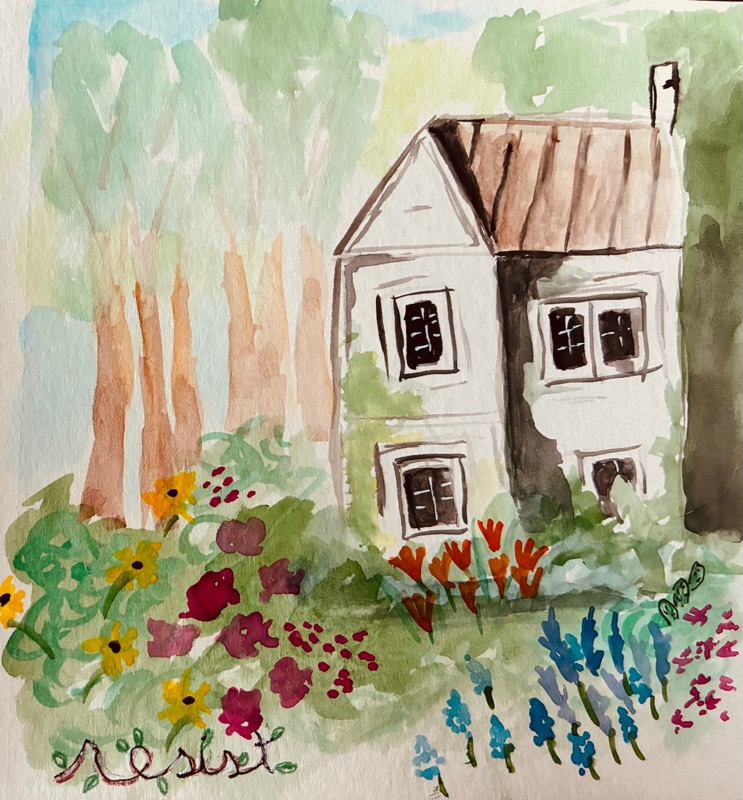
The fall of democracy started small, just a scattering of pebbles down a steep hill: a bigot in power here, a draconian law there--until the trickle became an avalanche of hate.
It was the same with Mr. Donohoe’s garden.
He started with just a couple of rose cuttings given to him by a neighbor. When he went out to water the lawn in the evenings, he enjoyed seeing how the rose cuttings grew and changed each day. By the time they burst into bloom, he was hooked.
As the evening news became more-and-more grim, Mr. Donohoe watched TV less and gardened more.
As human rights protections fell, Mr. Donohoe put down fertilizer to help his plants build resilience.
Under the threat of war with former allies, he planted flower bulbs to fill his garden with hope for the future.
To honor the memory of the neighbors and friends snatched from the streets, Mr. Donohoe cultivated marigolds, nopal cactus, and poinsettias.
As supermarket shelves became increasingly bare, he set up a free farm stand by his mailbox filled with zucchini, corn and tomatoes to feed his neighbors.
When he wasn’t in the ,garden, he did the same as many others: made the calls, signed petitions, went to the marches. None of it felt like enough, but he kept at it, day-by-day, and in the evenings he healed his soul by pulling weeds, watering, and digging in the rich earth, and by sharing what he grew with those in need.
Ugliness and despair grew and grew, but so did Mr. Donohoe's garden.
As the garden surged, so did the rumors about Mr. Donohoe. He rarely left his property, and his hair and beard had grown wild and woolly from neglect. There was something different about him, and different was dangerous.
In the end, his quiet kindness and generosity weren't enough to save him. When they came for him, they had to hack their way through the roses, grown from those very first cuttings, to reach the front door.
Without Mr. Donohoe there to tend it, the garden continued to grow in wild and unfettered ways. Deer, rabbits and bees lived contentedly in the tangle of flowers and bushes while birds of all types nested and sang in the trees, unbothered.
After a time, stealthy neighbors snuck in and tamed the vegetable patch, while others distributed the food it produced.
While adults cultivated the vegetables, children played in the shade under the trees on hot days.
People came to pick bouquets to brighten their homes and their moods and stayed to pull a few weeds while they were there.
The garden became a jewel at the heart of the neighborhood, which the residents tended with care; it brought them the same solace it had given Mr. Donohoe.
The revolution started small, spreading like dandelion seeds floating on the wind. By the time it took root and burst into bloom, it was too late for the fascists to stop it. It grew as robustly as the roses in Mr. Donohoe's garden, watered by hope and fertilized by courage.
Sadly, no one ever learned what became of Mr. Donahoe. But, like him, all of us carry within us the seeds of change. Don’t give in to despair. Instead, plant acts of kindness. Plant compassion. Tend lovingly to those in need. Pull out the weeds of hate wherever you find them, cross-pollinate with community action, and watch justice bloom.
No comments:
Post a Comment